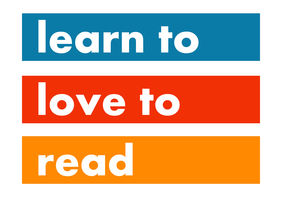‘The books we were reading had about three words on the page and we are about to start a 100-page book with proper chapters - a huge transformation in less than a year! It’s inspirational!’
Paul joined our volunteer team in September 2021. He had been helping at a vaccination centre with his partner Haddon during COVID and wanted to continue volunteering in some capacity – ‘the act of giving up some free time for a worthwhile cause is just something we both really believe in’. He came across Learn to Love to Read on the Wandsworth Volunteering website, made contact and it went from there.
Paul is one of our virtual reading volunteers, a new approach using Zoom and online reading schemes that we developed through necessity during COVID and which we now still choose to offer alongside our in-school volunteer support. Working full-time as an accountant, Paul would not have been able to volunteer in a school during the week, but as we can offer our virtual support at the weekend, this works perfectly for him. As Paul’s experience shows, our virtual offer has its challenges, but it can also be hugely impactful and rewarding.
So what made Paul choose to volunteer with Learn to Love to Read? ‘The fundamentals of a child starting in the world and being able to read are just essential. It’s the building blocks of everything really. I was pushed hard by my mum who loved reading and wanted to instil that in me and my sister. I guess that has carried with me in life and I think it is so important.’
Many people are surprised that we can offer reading support to a child through a computer screen. What were Paul’s expectations?
‘I wasn’t sure what it would be like doing it virtually. I wasn’t sure whether you would have the same interaction as being next to someone. But actually it has worked really well.’
It is definitely dependent on the child having a suitable device, and a reasonably quiet environment, as well as a parent willing to commit to a regular routine. So it doesn’t suit everyone. Paul now reads with two sisters, one in Year 2 and the other in Year 3, and the added dynamic of connecting with a whole family is one of the unexpected advantages of our virtual sessions. Not only can the siblings encourage and inspire each other, but the volunteer can engage directly with their parents and model how they can offer support during the week.
‘Originally, I was reading with a different child. Every Saturday at 9am I would log in and invariably there would be times when the family just wouldn’t log on. So after a period of time we all agreed this wasn’t really working. And that was a little bit disappointing and frustrating, I had hoped someone would be biting my hand off to be there - it’s free and I’m reading with their child, supplementing the child’s education - but it just didn’t work for that particular family. But with the two sisters I am reading with right now it has been fantastic, and I’ve been reading with them both for nearly a year. We had the same issues a little bit at the start, but now routinely every Saturday they are there and they seem really keen to be read. Even when I’m on holiday I’ve been able to log in from my holiday location to read, because they ask if we can still do our reading session and that is really nice. Really rewarding.’
‘The interactive nature of the books, with the quizzes and the sound effects and all of that on Zoom, is brilliant. The two kids really love all of that. And that is available for the parents as well. I am maintaining a word list which I send to the mum every week. As we go through the book the children spot words they don’t know. They can pronounce the words but they don’t always know what the words mean. And you kind of want both, because the story is not brought to life if you don’t know what the words actually mean. Even if the children are reading other books over the course of the week, they will bring the book and they will have highlighted a few new words. And we will just go through them, write them in the document and the definition of them and the following week we will go back to that list and I will just quiz them on some of them.’
‘When I first started the younger sister was reading very basic books, a couple of words on the page, and she really struggled. I still remember, and I tell friends the story, that it was like a lightbulb had gone off in her head mid-week and suddenly she was just reeling off every word. It was still stuttering a little bit but there was that transformation from one week to the next. And from then onwards it just got better and better. She is definitely the more distracted of the two, her older sister is more studious and loves reading and that sets a good example for the younger one. The funny thing is, the younger one will ask me what her sister is reading, in a competitive way, and then she will make me put that book on screen and she will start trying to read it. We are now at the point where the older sister has just finished a book last week, over a hundred pages and it took a few weeks, and I’m starting the same book with the younger sister because she is looking up to the older one and saying I want to read those books.’
So would Paul recommend this form of volunteering to others? ‘I wholeheartedly recommend it and I have done actually with friends who have asked about it. If you can persevere at the start with some of the issues I spoke about and turn a corner then it is super rewarding.’




